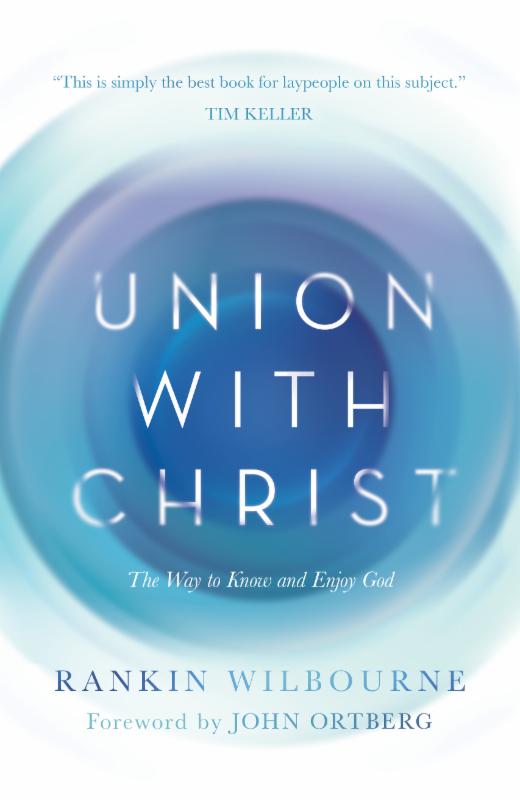
For this book review, my husband volunteered to read. He's a voracious reader. Here's what he thought.
Rankin
Wilbourne believes that recent church history shows a lack of
emphasis on the concept of union with Christ. He hopes his book,
“Union with Christ,” will be part of a current growth in
appreciation for this principle, which will yield great benefits for
Christendom.
What
does he mean by “union with Christ?” That's hard to say.
Wilbourne chooses to use plethora of metaphor and imagery to stir the
readers' imagination, but asserts that the concept is impossible to
define. Regarding biblical “pictures” of the doctrine, he
explains, “the number of metaphors tells us how important this is;
the variety tells us how far reaching. But the fact that metaphors
must be used at all tells us there is no way to describe or explain
union with Christ directly.” By this reasoning, the relative lack
of metaphors concerning Trinitarianism would suggest that it is not
important and rarely affects the rest of theology or our lives.
Wilbourne has, I think, allowed his fascination with the concept of
union with Christ to cloud his judgment. While all the implications
of this doctrine cannot be addressed briefly, the basic idea [as is
true for most doctrines] can be succinctly stated; it was, in 1520,
by Martin Luther in “The Freedom of a Christian:” using the
analogy of marriage [Ephesians 5:31,32], Luther explains that if
“there is between [the believer and Christ] a true marriage,
everything they have they hold in common, the good as well as the
evil.” Luther goes on to discuss how the believer gains mighty
gifts from the relationship while Christ is not tainted by the faults
and sins He shares in the union.
Wilbourne
traces the concept of union with Christ through church history, sadly
opining that this doctrine was, until recently, a mainstay of
Christian thought. The notion of consistency is hard to maintain
when only one proponent of the matter [Bernard of Clairvaux] is cited
for the 4th through 15th centuries; and citing
B. B. Warfield, Karl Barth and C. S. Lewis [plus others] refutes the
author's assertion that the doctrine's consideration diminished
during the mid-19th to mid-20th centuries.
- The book's strength is its exposition of the way union with Christ affects the Christian perspective on salvation, prayer, spiritual growth, suffering, and a host of other important aspects of life. These thoughts are both informative and encouraging, and are gems worth working through the vagueness and metaphors to grasp. Wilbourne is right: grasping this doctrine can yield results that help redically promote spiritual growth.
The
fascination with a doctrine that has made such a strong personal
impact leads Wilbourne to obscuring simple things and oversimplifying
complicated aspects of his subject; this same fascination gives him
the ability to inspire his readers with his passionate explanations
of the varied and transforming implications of union with Christ.
The
end notes, while not formatted as a “for further study” resource,
can be valuable in providing further writing on the book's subject.
This book may be flawed
but definitely worth reading.
About the Book:
Union with Christ means that you are in Christ and Christ is in you. This almost unfathomable truth is the central theme of the Bible from Genesis to Revelation. Yet few Christians ever experience it.
Union with Christ reveals the transformational power of this ancient doctrine while addressing the greatest questions of the human heart:
Who am I?
Why am I here?
Where am I headed?
How will I get there?
Nothing is more practical for enjoying the Christian life than union with Christ. The recovery of this truth offers hope and healing---for our destiny is to not only see Christ as he is one day but to actually become like him today.
Union with Christ reveals the transformational power of this ancient doctrine while addressing the greatest questions of the human heart:
Who am I?
Why am I here?
Where am I headed?
How will I get there?
Nothing is more practical for enjoying the Christian life than union with Christ. The recovery of this truth offers hope and healing---for our destiny is to not only see Christ as he is one day but to actually become like him today.
 About the book:
About the book:Rankin Wilbourne is senior pastor of Pacific Crossroads Church in Los Angeles. As a former commercial banker, Rankin understands the "gap" between the gospel preached on Sunday and the world people face Monday-and equips believers with a hands-on 24/7 faith. Rankin and his wife Morgen reside in California with their three children.bout the author:
This reviewer received the
product free or at a discounted price in order to bring you an honest
review. No other form of compensation was given. All opinions are
those of the reviewer.
No comments:
Post a Comment